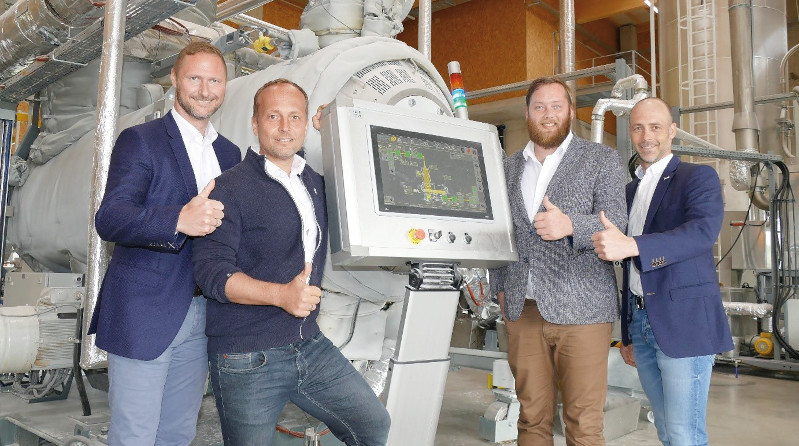High-quality rPET granules from mixed streams
Mission PET and Next Generation Recycling GmbH collaborate on LSP PET recycling in food and non-food applications
Mission PET and Next Generation Recyclingmaschinen GmbH (NGR) have announced the application of NGR’s Liquid State Polycondensation (LSP) technology in upcycling off-specification PET materials, such as fines, shredded lumps and mixed-coloured bottle flakes, into high-quality rPET granules. The two companies say that the successful demonstration of the technology highlights the potential for sustainable recycling solutions beyond traditional food-grade applications, paving the way for a more versatile approach to PET recycling.
Mission PET, based in Austria, says that it is breaking new ground by targeting PET streams such as non-food bottles, trays, fibres, straps, agglomerates and fines, materials that were previously considered waste, into material to create valuable new products. This approach supports sustainability and meets the rising demand for high-quality recycled PET (rPET) in various industrial applications.
“Our collaboration with NGR and the use of LSP technology allows us to produce high-quality rPET granules from mixed streams, which significantly broadens the scope of sustainable PET recycling. We have the chance to upcycle those completely different streams and give them back a life in a valuable product,” said Markus Huemer, CEO of Mission PET.
Their flagship product, “rPET BNT 75/80,” is made from a mix of coloured non-food bottle flakes, fines and lumps. It achieves a viscosity close to virgin PET, making it suitable for a wide range of applications.
Production process: Leveraging LSP technology
Mission PET’s process uses NGR’s LSP technology, specifically its P:React system, which enables efficient recycling of diverse PET streams through a liquid polycondensation process. Unlike conventional methods, LSP is claimed to ensure thorough decontamination in the liquid phase, which is crucial for producing high-quality rPET.
NGR’s LSP is an established technology that has been used worldwide, especially for food-grade (EFSA, FDA), for over 10 years. The collaboration with Mission PET now makes it available for non-food-grade applications.
The LSP process is not dependent upon or affected by material thickness. It ensures uniform quality by melting the PET before decontamination. LSP can process composites like PET/PET-G and PET/PE. The process allows precise control over the intrinsic viscosity (IV) of the PET, resulting in consistent mechanical properties in the final product. Continuous material flow and direct integration into downstream production processes reduce energy consumption and improve operational efficiency.
“The LSP technology represents a significant advance in PET recycling. By decontaminating in the liquid phase we achieve a higher purity and more consistent quality, making it possible to recycle materials that were previously problematic,” David Hehenberger, Product Manager for PET Recycling at NGR explained.
Mission PET says that its ability to upcycle materials traditionally destined for incineration or low-value applications into high-quality rPET granules is a game-changer. This process not only supports environmental sustainability but also reduces dependence on imported virgin PET, thus aligning with European sustainability standards.
The rPET granules produced are ideal for manufacturing straps and fibres, offering good strength and durability and the consistent IV and purity of the rPET make it suitable for producing high-quality foamed PET sheets. rPET granules with higher IV values (up to 0.8 dl/g) are suitable for various technical applications and thus reduce the need for virgin PET.
As the demand for high-quality rPET continues to grow, the partnership between NGR and Mission PET is described as providing sustainable solutions that benefit both the environment and the economy.
Photo top: F.l.t.r.: Stefan Musner (NGR), Markus Huemer (Mission PET), Daniel Pichler (Mission PET), David Hehenberger (NGR)

